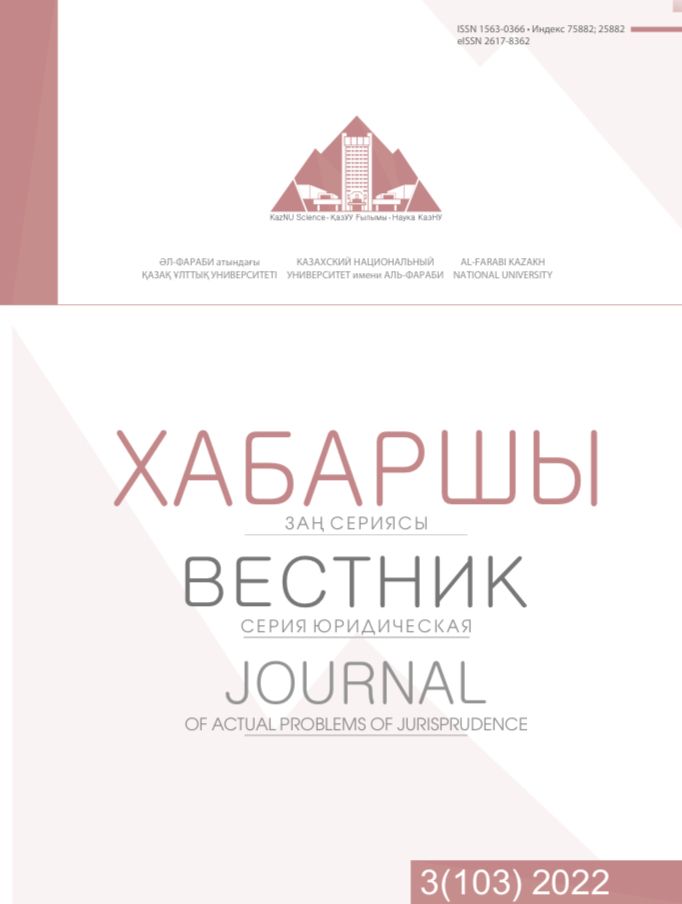Legal protection of land resources from degradation in conditions of global warming and climate change
DOI:
https://doi.org/10.26577/JAPJ.2022.v103.i3.08Abstract
Over the past decades, global warming and climate change have been on the agenda. All over the world, there is a decrease in fertile soils, and the degree of land degradation is increasing. The issue of providing the population with food in sufficient quantity and quality is acute. It becomes obvious that the system of protection of land resources and the environment require decisive measures to preserve fertility. The purpose of this article is to propose changes in the legal protection of land resources based on an ecological approach. Therefore, the work provides a detailed analysis of the causes of soil degradation, both in the world and in Kazakhstan, and environmental legislation is considered through the prism of improving land quality and increasing fertility on a long-term basis. The Republic of Kazakhstan is one of the countries where environmental problems are quite acute, but have not yet found an adequate solution at various levels of government. In the process of writing a scientific article, a complex of methodological approaches and methods of scientific knowledge was used, including ecosystem, informational, statistical data analysis, quantitative and qualitative data methods, content analysis, and others. Legal norms can only partially affect the change in the ecological situation, in conditions when the land is considered as a resource, and not as part of the natural system, in which humanity is also one of the elements. The environmental code requires the consolidation of the principles of economic incentives for land users in reducing pollution and land degradation, ensuring soil fertility and biodiversity conservation.
Keywords: ecology, soil degradation, environmental code, global warming, climate change, land resources.













